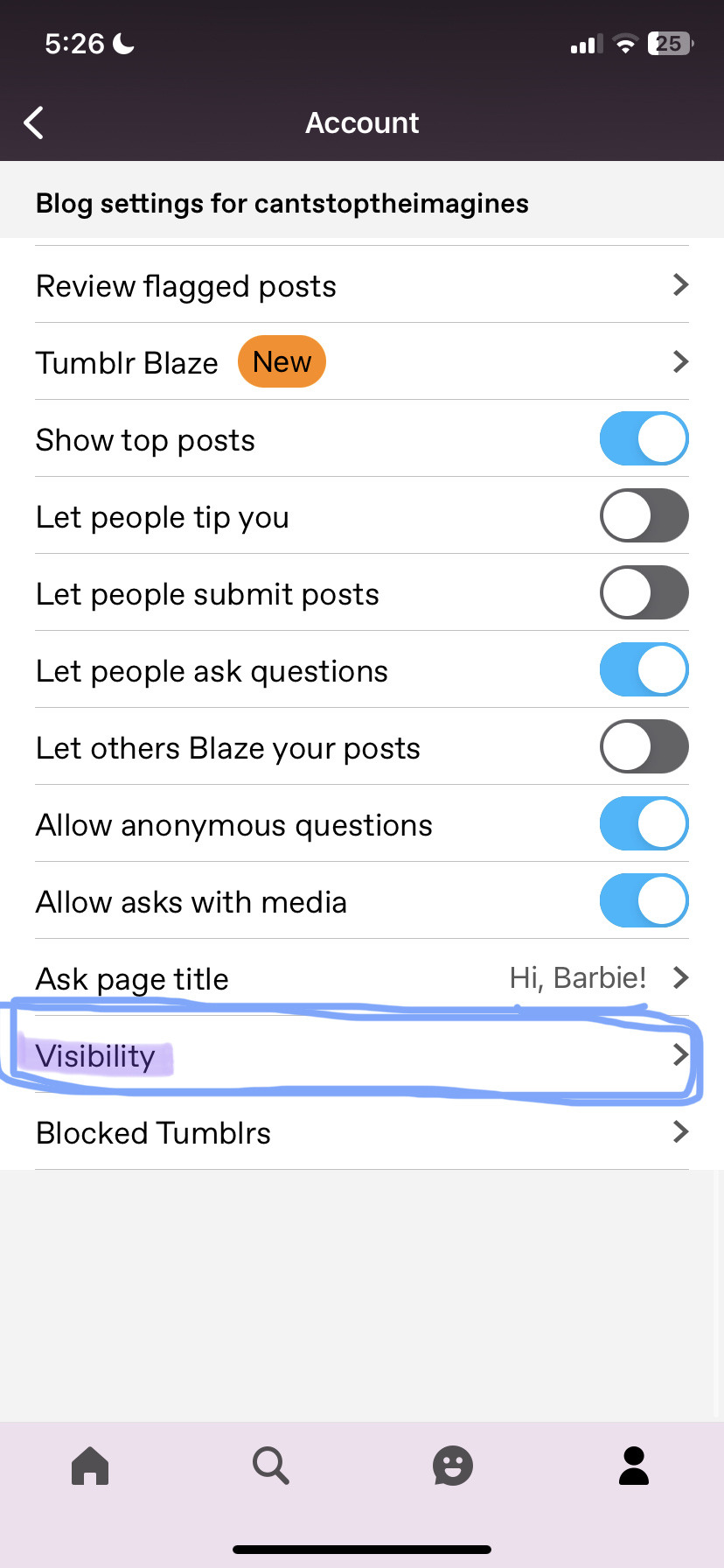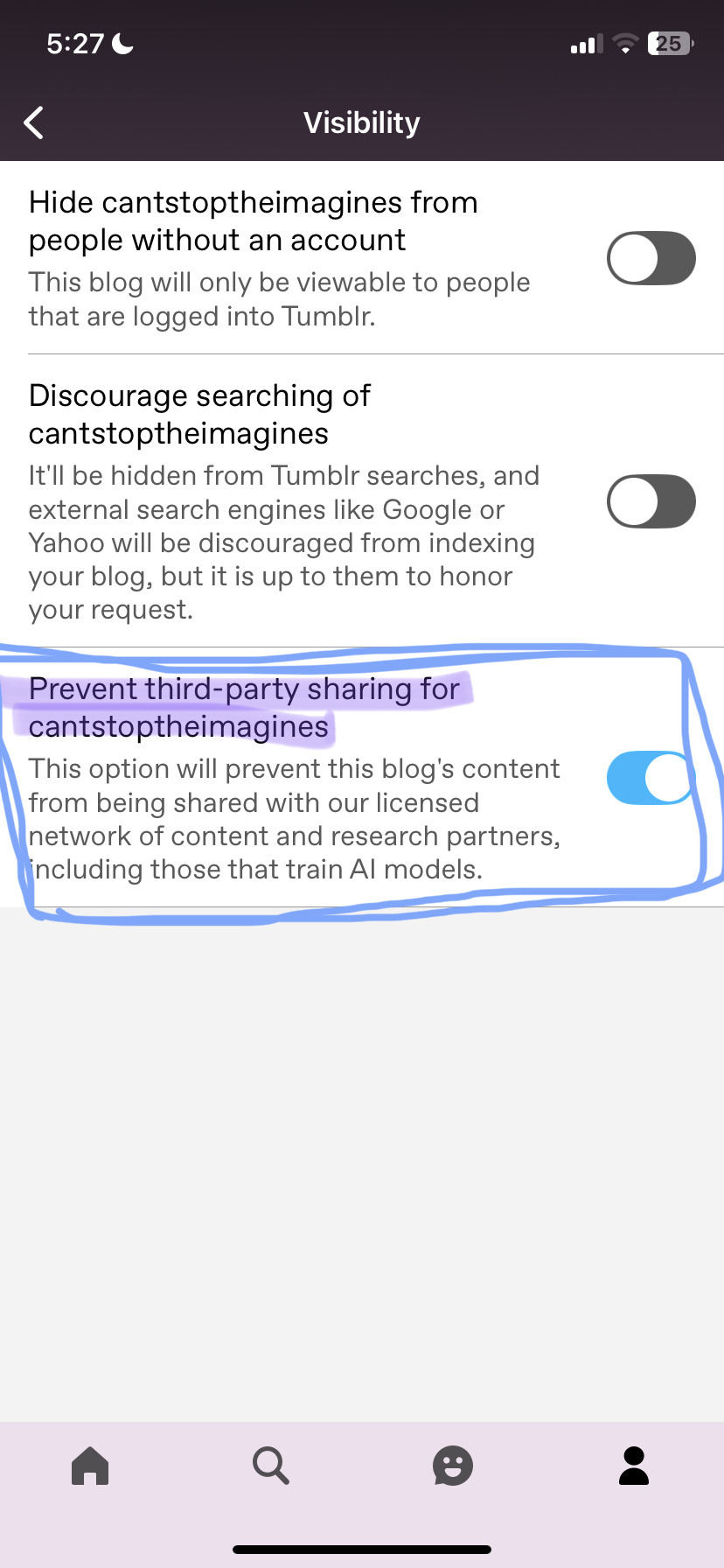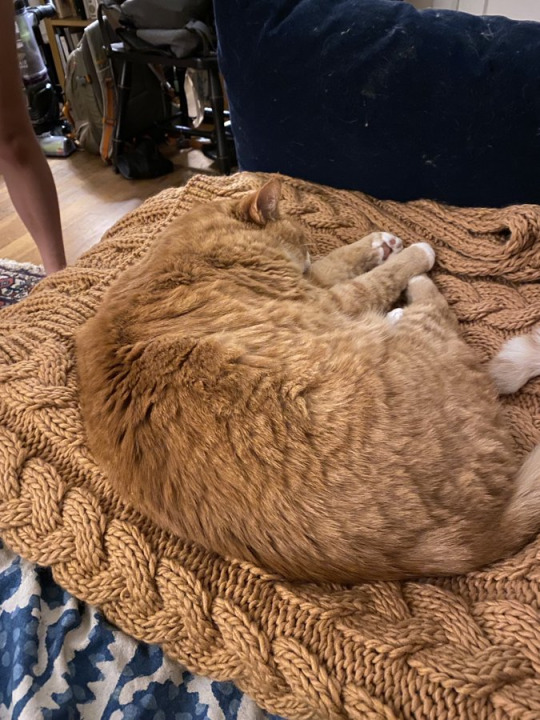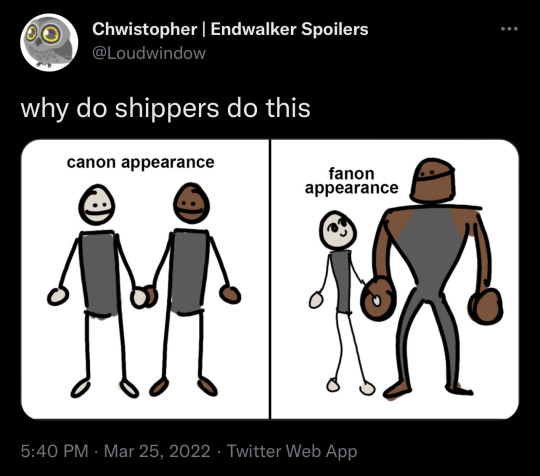Text
attention all writers! tumblr is rolling out a new feature that allows our work to be used in ai training processes!
be sure to opt out of this in your visibility settings immediately! and remember, you have to opt out for each blog, not just your main!
go to your blogs’ settings (again, you have to do these steps for each blog, not just your main blog)
scroll until you see “visibility” and choose that
in your visibility settings, choose “prevent third-party sharing for (blog name)”
you may opted out already but we don’t take chances with ai around these parts *insert angry cowboy*


tagging some mutuals to get the word out — @multifandomsimagine @pegxcarter @moremaybank @gladerscake @goldenroutledge @thatsthewaythechrissycrumbles @drewstarkeyslut @drudyslut @tangledinlove @rafeandonlyrafe @mvybanks
5K notes
·
View notes
Text
Once you become a certain age, it is your responsibility to unlearn behaviors that hinder your growth as a person.
274K notes
·
View notes
Text
Life is so short. Make a fanchild of your favourite ship, make bad art, write fanfic cliches, make closet cosplays, have fun in fandom. Do what you love.
236 notes
·
View notes
Text
i went to get my t-shot yesterday and it took me an hour and a half to get to the clinic and as soon as i got on the bed the nurse dropped my t-shot and it broke and now they're trying to make me pay for the replacement. i think the fuck not lmao
41K notes
·
View notes
Text
Catmouflage
cats camouflaging themselves














35K notes
·
View notes
Text
Undergrad Etiquette
One thing that has come up a lot in the notes of my various academiaposting posts is that there seem to be a lot of people who were happy to see the invisible rules of the university environment spelled out more explicitly. It looks like a lot of people aren't learning this sort of thing in high school. That gives rise to an equity issue - the only people who learn how to navigate the university are people who can learn it from their parents, and that's obviously going to leave a lot of people out. So, I hope you'll forgive me the pretension of what I'm about to do, which is make some of the invisible rules visible.
My mission here is not to shame, it's to help. I truly believe that the majority of unpleasant student/instructor interactions stem from miscommunications and misunderstandings, not instructors being cruel or students being lazy. The world does have cruel instructors and lazy students in it, but most people are just doing the best they can under imperfect circumstances. The key point is that this is all etiquette, not moral strictures. I'm not saying that all of these things are morally wrong (some of them might be), I'm saying they're rude. If you've done these things before, well, now you know. No hard feelings. With that in mind, let me give you a few pointers. (nb. all of this applies to the US and Canada, but I have no expertise teaching in other locations. If you're an instructor in another place, please feel free to add or subtract points below).
Do: Go to office hours. It's not an imposition. The time has been specifically set aside for you. Your instructor wants you there. Any topic from the class (or related to the class) is fair game, up to and including just talking about what you like about the course or subject. Your instructor is typically someone who likes this subject enough to have written (or be in the process of writing) a 200-page book about this subject, so they're typically pretty down to chat about it.
Don't: treat your instructor like a free therapist, doctor, or conflict mediator. We have no training in those areas. If you're having a mental health crisis the most we can do is point you in the direction of the university's counseling center, so you're better off just going there to begin with. Other things your instructor is not in a position to do include: diagnose you with an illness, make a different instructor change their schedule, prevent another girl in class from stealing your boyfriend, prove to your mom that this degree is worth it, comment on controversial world events beyond the scope of the class, and go on a date with you. These are all real examples.
Do: Communicate problems you are having with the class early and directly. We can't stop the train unless we know that someone has been left behind. If you're struggling with something, we want to know - both so that we can help you, and because it's quite likely that someone else in the class has the same problem and also needs help. The more information we have the more we can do.
Don't: Do any of the above without first a) reading the syllabus and b) making one solid attempt to do the work on your own. It is infuriating to answer endless emails from students asking questions that are answered in a document that they already have and that I already asked them to read. This is the most mystifying one of all. I do not know why students don't read these things. The syllabus is always on the LMS. It will answer 80% of your questions. Similarly, homework is designed to give you an opportunity to learn something. It does not assume you already know how to do it. Even if what you're looking at is very unfamiliar to you, try it on your own first to see if it clicks. If it doesn't, we're there to help.
Do: Stay home from school when you're sick. I won't be impressed with your diligence if you come in sniffling, I'll be annoyed that I'm going to be sick again. Anyone who works in education gets sick just constantly. And before you think 'but I'll be punished for not attending and I need a doctor's note!', check your syllabus first. Very often this is not the case. Some real old-timers insist on perfect attendance, but most instructors don't care. Sometimes we'll slap a really tiny nominal penalty for attendance on, but that's just to help people actually get out of bed in the morning. Usually it's not enough of a penalty to worry about for a one-time illness.
Don't: Go on vacation during the term. This is the other one I just find baffling. No, you can't reschedule the test because you've decided to leave early for Spring Break. I'm not going to re-teach you all the lessons you missed because you 'needed' to go to florida for your cousin's birthday. Doing this is an extremely good way to annoy your instructor, who almost certainly cannot go on vacation during the term. We're not going to do extra work for you so that you can go have fun. You are paying (quite a lot) for the opportunity to take a set of classes in a term. That does not mean you can just decide to get the benefits of those things on any schedule you please. We are not an on-demand service and it does annoy us to be treated like one.
Do: Ask questions about why you were graded the way you were. If you don't understand why you got the mark you got, it's fine to ask us directly. You can't learn from something you don't understand. So long as you go in with the goal of understanding (rather than changing) your grade and don't accuse us of anything shady, we're pretty happy to explain it. You can also do this before the project, to an extent. For some people it's much easier to do well at a task if its purpose has been explicitly explained. Don't try to get 'cheat codes' or anything, but feel free to ask questions about the purpose of the assignment if you're confused. Professors often forget that you might not already know what these things are for. You'll get way more out of school if you try to understand why you're doing what you're doing.
Don't: Beg for grades or extra credit assignments. It's not fair to the rest of the class for us to give you these just because you begged. We shouldn't be doing it, and mostly we don't. If the stakes are really as high as they invariably are when I have this conversation, you needed to have been keeping an eye on your grades throughout the term and correcting early, before it was too late. Hopefully the fact that I'm making this post in January will make sure that's the case for you.
Do: Make your own arguments, even though you're not an expert. Most humanities classes present a body of material that the instructor does not all think is right. We typically try to present multiple perspectives on issues and let you figure out what you think. So, even if an author is a big fancy famous historical guy, you're absolutely still allowed to disagree with him. We want you to do that. Just try to take your interlocutor seriously on their own terms so you don't end up with a weak argument. And no, it is not sufficient to merely mention that the author is a white cis man. Some of them are right about stuff too.
Don't: let your mother phone me. And if your parents are the sort of people that do wildly inappropriate things without your permission, don't give them enough information to contact me. In many jurisdictions I'm not even allowed to talk to them (or anyone else) about your grades. Even in jurisdictions where it is allowed, I'm not going to do it. If you're in university, you're an adult and will be treated like one. Also I don't enjoy being threatened.
Do: Back up your files. Computer problems do happen, but you're still responsible for your work when they happen. That's true in every other human context. Shit happens, so bring toilet paper. There are a million ways to do this - pick one that works for you.
Don't: try to submit written assignments in a format other than .doc, .docx, or .pdf unless you have explicit permission to do otherwise. These formats are industry standard and basically all programs do one of them. I'm not going to risk my computer trying to convert your shit from whatever baroque new .fhqwhgads extension you've given me, I'm going to mark it late.
Do: Read comments we leave on your work! Those are there to help you improve! I know it's a difficult thing to muster up the will to do, but we really are only trying to help you. It's very dispiriting to watch a student who could easily improve a lot make the same mistakes over and over.
Don't: Eat in class unless the instructor has explicitly said it's ok. It's straight-up banned in lots of buildings for reasons of historical preservation or pest control. Moreover, a lot of instructors and fellow students (present company included) find the sight, sound, and smell of students eating in class to be intensely distracting. If there's a medical reason you have to eat, tell your instructor and they'll propose a reasonable alternative (like ducking out for a few minutes to have a granola bar).
Do: send your instructors things like news articles or memes about course material. We want these things.
Don't: send your instructors porn, fanfiction, thirst traps, or pictures of you relaxing at the beach. Yes, I've heard of all of these things happening, and one happened to me. We do not want these things. Even if it's really funny, like that one Newton/Leibniz smut fic.
Do: check what your university's standards for plagiarism actually are. They are very likely not what you think. Your professor has to use them, so you had better know them. Arguments from ignorance will not save you.
Don't: post any classroom recordings, photographs, or notes online. Even if they're funny. When students do this it doesn't typically result in armed nutjobs turning up at our place of work and trying to kill us, but it doesn't never result in that. Also, classroom recordings contain the voices and faces of other students, and you don't have permission to use them. Don't record anything without getting your teacher's consent first. Some of us need to be a lot more careful than others.
Do: fill out your course evaluations! Most students don't, and typically the only ones who are sure to fill them out are the ones who are salty about something or other. If you thought the class was good, give your prof a hand (especially if that prof is a gender or racial minority, and especially especially if they have an accent that's unusual in your region. Those factors make student evaluations measurably worse).
Don't: talk about how much you do or don't want to fuck us on Rate My Professor. We try not to look at it but curiosity always gets the better of us eventually. Please also do not be mean about our voice, appearance, or dress sense.
In general: do deal with us as if we're all good-faith actors trying to make education happen. Don't treat us like we're arbitrary monsters.
I'll be monitoring the notes on this post if anyone would like additional clarification. Making education accessible is something I care a lot about, and this is part of that. I've tried to explain the reasons for all these things as best as I can, but I can elaborate upon request.
1K notes
·
View notes
Text


There is no profit or labor value to steal for capitalists, so housing the vulnerable will never change.
We can solve any problem we want once you remove the construct of capitalism.
We can save billions by treating people in need with solutions. Incarceration is a waste of so many assets. Criminalizing the needy is just an excuse to create more prisoners. Beyond stupid.
Here's an idea: turn every empty dying church into housing.
13K notes
·
View notes
Text
Might just write a story about a guy who has insane shit happen to him that he has to deal with.
Like going to the library and accidentally getting involved in a secret society that worships Cthulhu sort of craziness.
5K notes
·
View notes
Text

this is how some of y’all look and it’s so transparent…..
76K notes
·
View notes
Text
I’m not sure exactly how to articulate it but—there is this bizarre base assumption i see from people discoursing about children’s media, and that’s the assumption that children are somehow unfamiliar with negative emotions. Like, maybe you’ve managed to completely forget your entire life before you turned eighteen, but kids spend a lot of time being hurt, and scared, and angry. A lot of people had terrible fucking childhoods, and a lot of kids are having terrible fucking childhoods right now. When i was a child, and i read books where bad things happened to kids, that was in no way shocking to me, i already knew bad things happened to children. It made me feel more connected to those stories, not less, and it made it more impactful when those child characters overcame it all in the end. That’s important for children. A lot of them are in desperate need of a little hope, and they aren’t going to get it from nothing stories with no conflict. They put conflict in children’s media for a reason
Also i see some of you handwringing over child protagonists going through, like, the most basic hero’s journey. Please, for the love of god, realize that you as an adult are going to understand children’s media differently than the actual kids it’s intended for. Because you’re all grown up now, you aren’t going to be able to relate to a child protagonist. You’re going to see a child in danger. The children the story is meant for are going to see a kid like them who is able to face hardship and triumph
16K notes
·
View notes
Text
My DM is sitting with his head in his hands because we, a 3rd level party, just accidentally killed the campaign boss dragon during what should have been an encounter we were supposed flee from
9K notes
·
View notes
Text
"you do not owe friends instant responses to every social message, and anxiety over not receiving the same is something for the anxious person to work on, not your responsibility to totally change for"
AND
"you have to put some effort into friendships, which can include open communication with your friends about how to make both of you comfortable re: messaging. expecting other people to do ALL of the work ALL of the time, in terms of getting in touch and carrying on the conversation, may make them feel ignored and/or and leave"
are ideas that can and should coexist
17K notes
·
View notes
Text
had THE most unsettling phishing email experience today lads
532 notes
·
View notes



